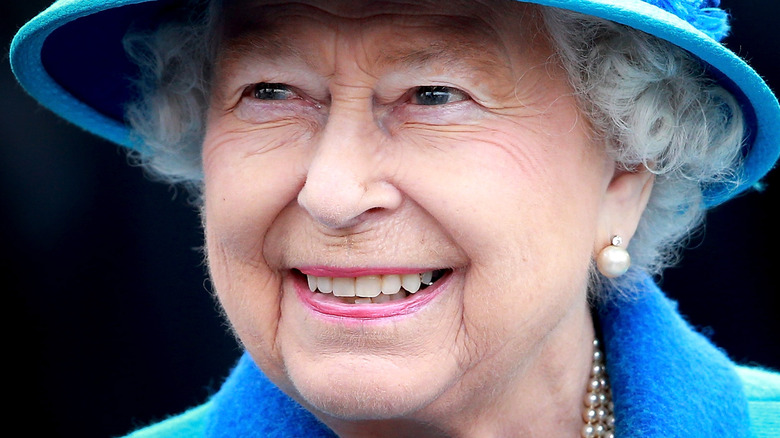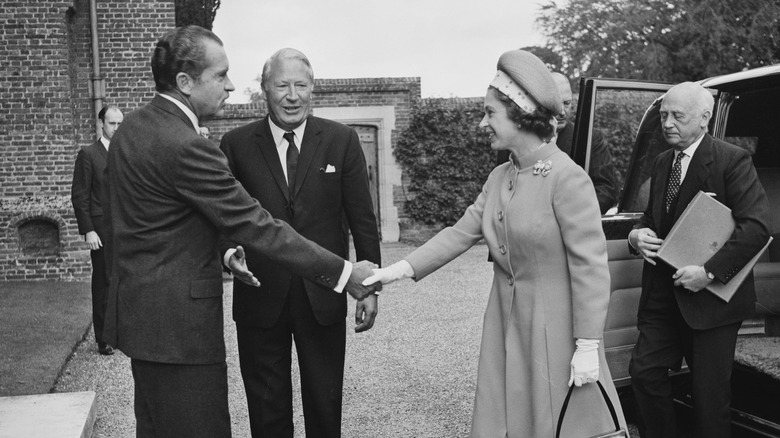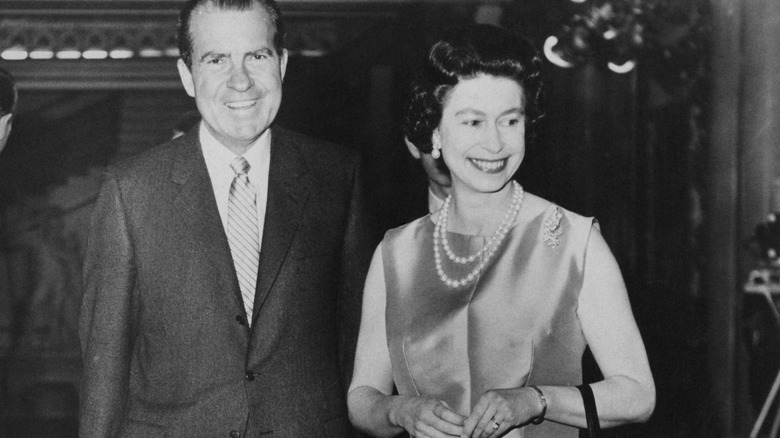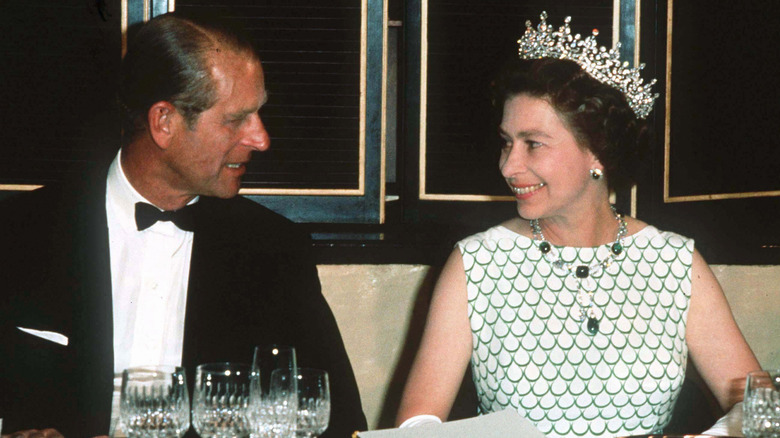The True Details About Queen Elizabeth And Richard Nixon's Relationship
Britain's Queen Elizabeth II has been on the United Kingdom's throne since February 6, 1952, according to The Metro. As such, she has reigned during the administrations of 14 U.S. presidents, starting with Harry S. Truman and going all the way through Joseph Biden. Further, she's met with 13 of them, and as of May 21, plans for Her Majesty to host the recently inaugurated 46th president at Buckingham Palace are beginning to fall into place, according to Town & Country Magazine.
One of those presidents appears to have struck up something of a friendship with Britain's sovereign: Richard Nixon. The 37th president first met the queen when he was vice president to Dwight Eisenhower, and then met her again as president years later.
What's more, rumor has it that Nixon had much more on his mind in terms of relationships with the royal family than just normal affairs of state. Further, Elizabeth's husband, the late Prince Philip, believed that he so egregiously offended Nixon that he wrote a formal letter of apology.
These are the true details you may not know about Queen Elizabeth and Richard Nixon's relationship.
Nixon and Elizabeth met three times
Richard Nixon officially met with Queen Elizabeth on three occasions, according to BBC America. The first was in 1957, when Nixon was vice president. It was the first of only three official state visits that the queen and her husband, the late Prince Philip, made to the States, during which the VP escorted the royal couple on their tour of the country.
The two heads of state met again in 1969, during a brief visit when Nixon stopped by Buckingham Palace. A year later, in 1970, they met for a longer and more formal visit. Specifically, getting Nixon and his entourage into Buckingham Palace was a logistical nightmare, so instead they met at the prime minister's official country residence, Chequers. Oddly enough, though the spelling is different, the pronunciation is the same as the board game, "Checkers." What's more, "Checkers" was the name of Nixon's dog at the time, though that was merely a coincidence.
Nixon reportedly had a more permanent alliance on his mind
Political alliances these days are made via treaties and accords and such, as opposed to centuries ago, when they were made through marriages. However, according to a possibly apocryphal story, Richard Nixon had the old way of cementing alliances on his mind when he met with Queen Elizabeth.
According to BBC America, when Nixon met with the queen back in 1969-1970, his unmarried daughter Tricia was in her early 20s, as was Elizabeth and Philip's then-unmarried son, Prince Charles. Decades later, Charles would reportedly joke that Nixon was keen to see Trish married off to him.
"When Charles and his new wife, Camilla, visited George W. and Laura Bush at the White House, he joked that the Bushes had better not try to fix up their twin daughters with his sons William and Harry the way Nixon had worked to set him up with Tricia," claimed historian Sally Bedell Smith.
However, it remains unclear how much Prince Charles was joking, and if Nixon did indeed try to marry off his daughter to Prince Charles, how serious he was about it.
Prince Philip feared that he had offended Richard Nixon
Meetings between heads of state and their families between different nations, with different customs and different cultures, can be a minefield when it comes to slights, offenses, and faux pas. What's more, Prince Philip was, during his lifetime, known for sometimes saying exactly what was on his mind without thinking things through first.
So did this fraught combination result in Philip offending Nixon? The Duke of Edinburgh certainly thought so. As The L.A. Times reported, during a 1969 visit to the White House, Philip apparently failed to follow protocol — or at least, he feared that he did — and slighted the POTUS. So distraught was the Duke that he even lost sleep over it.
A handwritten letter in the Nixon Library, penned by Prince Philip, explains what happened.
"After the brilliance of the other speakers and yourself, I am afraid my contribution was very lame. That night I woke up in a cold sweat when I realized I had forgotten to propose your health!" the duke wrote.
Whether Richard Nixon was genuinely offended by Philip's gaffe is unclear.



